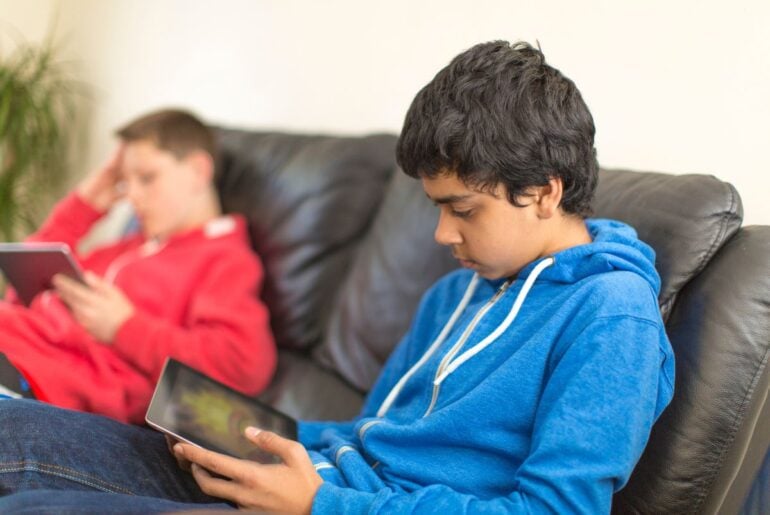Have you heard of the “manosphere?” It’s a term for the places and communities on the internet (social channels, websites, subreddits, and more) that promote a very narrow definition of “macho” masculinity, claim that men are naturally dominant, and often encourage anger, harassment and even violence toward women, trans and nonbinary people.
What parents need to know is that boys and young men aren’t setting out to find the manosphere or become misogynistic! Unfortunately, kids simply trying to find community and support online are led right into this radicalization by the algorithms. The algorithm can take a kid looking for a sense of belonging from searching “How do I get a girl to like me?” to workout suggestions to incredibly extreme content (blaming all their problems on women and feminism) really quickly.
And memes, one of the primary ways culture spreads and our kids communicate ideas, can be part of that gateway. “Humor” that pokes fun at women, feminism, expressing emotions, or even socially successful men might get a chuckle from tweens, without them recognizing the harmful underlying messages coming from the manosphere.
What do you do when your son shares one of those problematic memes — whether they understand the significance of its origins or not? Here’s how to respond with curiosity and guidance, showing that changing your mind and listening to others is a sign of strength.
What to say if your kid shares a misogynistic meme
View this post on Instagram
Start with curiosity: “I noticed this meme you shared. What made you want to share it?”
Explain why it’s harmful: “It seems like it’s making fun of girls or saying they’re not very smart. Sometimes, things like that can seem like just a joke, but they’re part of bigger ideas that teach people to disrespect women (or other whole groups of people).”
Encourage critical thinking: “When we share things like that, it spreads that hateful messaging around, even if we only meant it as a joke. Taking a second to think about what we’re promoting and making sure it fits our values — even if it means missing a chance to make our buddies laugh — shows real strength and maturity.
And so does admitting when we don’t know something — so if you ever see a meme or anything online that you’re not quite sure about, let me know. There’s a lot of great, funny stuff on the internet but also a lot of garbage — we can figure it out together.”
Model growth: “Thanks for listening. Being willing to learn and grow makes us better men, right?”
This script could also be adapted to address racist or xenophobic memes, or even content that your kid has noticed but not shared. It’s so important to interrupt toxic messages, even if they’re jokes, and show our boys healthier ways to interact with the world.







